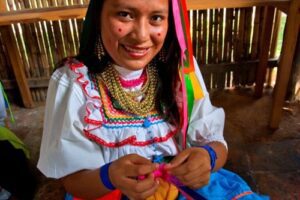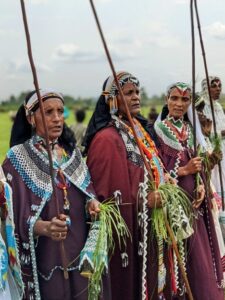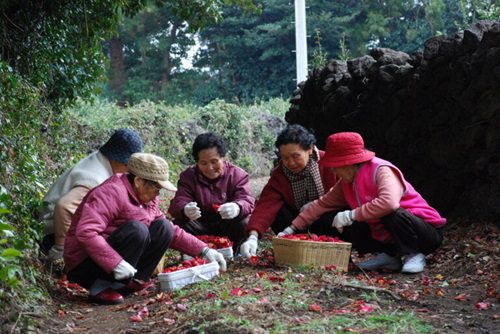![]() In the verdant landscapes and timeless streets of villages worldwide, a quiet revolution unfolds, powered by women’s resilience, creativity, and leadership. This Women’s Month, the spotlight turns to these unsung heroines who are not just preserving cultural heritage but are at the forefront of transforming rural tourism into a vibrant avenue for sustainable economic growth and social progress. At the heart of this transformation is the United Nations Tourism Organization’s Best Tourism Villages initiative, which stands as a testament to the indomitable spirit of women entrepreneurs and their pivotal role in crafting a more inclusive, resilient, and sustainable future for their communities.
In the verdant landscapes and timeless streets of villages worldwide, a quiet revolution unfolds, powered by women’s resilience, creativity, and leadership. This Women’s Month, the spotlight turns to these unsung heroines who are not just preserving cultural heritage but are at the forefront of transforming rural tourism into a vibrant avenue for sustainable economic growth and social progress. At the heart of this transformation is the United Nations Tourism Organization’s Best Tourism Villages initiative, which stands as a testament to the indomitable spirit of women entrepreneurs and their pivotal role in crafting a more inclusive, resilient, and sustainable future for their communities.
Sandra Carvão, the Chief of Tourism Market Intelligence and Competitiveness at UN Tourism, eloquently captures the essence of this global movement. “Our initiative is more than a program; it’s a global platform for women-led enterprises to shine, to show the world the power of sustainable tourism driven by the ingenuity and passion of women,” she articulates. These women are not just participants in the tourism sector; they are its driving force, utilizing traditional crafts, eco-conscious practices, and innovative approaches to hospitality that enchant visitors and create a sustainable source of income for their communities.

In the serene mountains of Lamas, Peru, the spirit of the Amazonian people of Andean descent is kept alive through the artistry of the Lamista women. They lead “Awadora,” a collective brand that empowers 46 indigenous artisans across five Quechua communities, turning traditional crafts into economic and cultural resurgence pillars. Similarly, in Lephis, Ethiopia, the Mishike Handicraft Association harnesses local resources like grass and bamboo, empowering underrepresented women and advancing eco-friendly tourism that celebrates the village’s rich biodiversity.

Further north, in Creel, Mexico, Rarámuri communities are redefining tourism through immersive gastronomy and weaving experiences led by women, thereby preserving their biocultural diversity while fostering economic development. Across the Pacific, in Dongbaek, Republic of Korea, female leadership propels the local economy with camellia flower cultivation, offering cooking classes and beauty products that showcase the village’s unique flora.
Not to be outdone, Xidi, a UNESCO World Heritage site in China, illustrates how heritage and innovation can coexist. The Anhui Girls’ Agritainment initiative promotes women’s employment and heritage protection, offering visitors an immersive homestay experience that bridges the past with the present. Meanwhile, in Oku-Matsushima, Japan, the Nadeshiko Kaisei Juku initiative empowers women through entrepreneurship seminars, transforming local markets into bastions of innovation and resilience.

These stories show how women-led enterprises reimagine rural tourism, proving that sustainable development and cultural preservation are ideals and achievable realities. By providing women with the tools, resources, and platforms to lead, UN Tourism’s Best Tourism Villages initiative is not just celebrating women’s achievements; it’s paving the way for a future where tourism is a conduit for economic empowerment, environmental stewardship, and social equality.
As we revel in the successes of these remarkable women and their communities, let us also acknowledge the journey ahead. The path to sustainable and inclusive tourism development is long and challenging. Yet, with the continued support of initiatives like the Best Tourism Villages and the unwavering spirit of women entrepreneurs, the future of rural tourism looks brighter than ever. This Women’s Month, let us commit to not just celebrating but actively supporting women’s empowerment in tourism and beyond, for in their success lies the key to a more sustainable, equitable, and prosperous world.
Written by: Supaporn Pholrach

